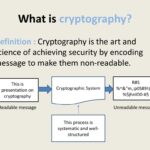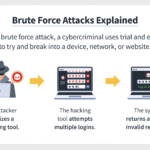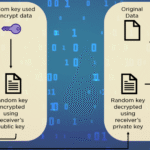Cryptography, the art of secure communication, often evokes a sense of mystery and intrigue. Many individuals perceive it as an inscrutable discipline reserved only for the mathematically gifted or those with advanced technical skills. However, this viewpoint is not only reductive but also misrepresentative of the field’s accessibility. In fact, debunking the myths surrounding the learning curve of cryptography could serve to empower a broader audience, thus potentially enriching the realm of cybersecurity and data protection.
To begin with, the perception that cryptography is inherently difficult to master stems from its association with complex mathematical principles. While it is true that a foundational understanding of certain mathematical concepts—such as modular arithmetic and number theory—can be beneficial, they do not constitute a prerequisite for delving into this field. Many introductory resources and tutorials break down these concepts into digestible segments, making them approachable for beginners. Thus, the myth that one must possess an advanced degree in mathematics stands challenged. A motivated learner with an inquisitive mind and a willingness to explore can certainly navigate the initial waters of cryptography.
Moreover, the portrayal of cryptography as an esoteric domain is exacerbated by its cryptic terminology. Terms like “symmetric key,” “asymmetric key,” and “hash functions” can appear daunting to novices. However, understanding cryptography largely relies on comprehending its underlying principles rather than memorizing vocabulary. For instance, the notion of symmetric versus asymmetric cryptography can be simplified to the concepts of shared secrets versus public keys. By breaking down these abstract notions into more familiar terms, anyone with a keen interest can gradually build their understanding without being overwhelmed.
Another common misconception is the belief that cryptographic practices are exclusively for those working in specialized fields such as information technology, finance, or defense. This narrow lens overlooks the omnipresence of cryptography in everyday digital life. From securing online banking transactions to protecting personal data shared on social media platforms, cryptography underpins numerous activities that most users engage in daily. Consequently, individuals from various backgrounds—ranging from entrepreneurs to educators—can find relevance in acquiring cryptographic knowledge. This democratization of learning equips individuals with the tools necessary to protect their information and maintain privacy, thus reinforcing the importance of accessible education in this domain.
One of the deeper reasons for the fascination with cryptography lies in its historical context. Dating back centuries, cryptographic techniques have evolved alongside the need for secure communication, from ancient ciphers used in wartime to contemporary encryption algorithms that protect sensitive data. This rich tapestry of historical significance renders cryptography an alluring subject for those captivated by the interplay of intellect, secrecy, and power dynamics. Understanding cryptographic evolution allows learners to appreciate its current implications and sparks curiosity about future developments, particularly in the age of quantum computing and advanced cryptanalytic techniques.
Additionally, the ethical considerations surrounding cryptography contribute to its intrigue. At a fundamental level, cryptography serves dual purposes: it ensures privacy and enables secure communication while simultaneously providing a shield for malicious activities. This dichotomy raises questions about the moral implications of technological advancement. The discourse surrounding cryptographic regulation, backdoors for law enforcement, and the balance between privacy and security has galvanized public interest and engagement. By exploring these ethical dimensions, individuals not only enrich their understanding of cryptography but also position themselves within broader societal conversations.
Furthermore, the ongoing developments in the field signal that cryptography is not a static discipline but rather a dynamic entity requiring continuous learning. With new algorithms and methods emerging at a rapid pace, those who delve into this sphere must remain informed and adaptable. This characteristic may deter some potential learners who perceive the need for perpetual education as daunting. However, it also highlights the sense of community found within the cryptographic sphere. Online forums, workshops, and conferences foster collaborations and discussions, allowing individuals to share knowledge and experiences. This cooperative environment can transform the learning process into a collective journey, making the experience more accessible and less isolating.
In light of these observations, the assertion that cryptography is hard to learn warrants reevaluation. While it may demand effort, dedication, and a willingness to engage with both theoretical and practical aspects, it is by no means an insurmountable endeavor. The advent of accessible educational resources has lowered the barriers to entry significantly. Thus, the onus lies with aspiring learners to harness their curiosity, seek out reputable materials, and take the plunge into this riveting field.
In conclusion, as one navigates the world of cryptography, it becomes abundantly clear that dispelling preconceived notions about its difficulty can empower individuals across disciplines. By understanding its principles, appreciating its historical context, grappling with ethical dilemmas, and engaging with a supportive community, learners can unlock the mysteries of cryptography. Ultimately, this journey not only enriches personal knowledge but also enhances the collective effort to secure our increasingly digital world.








Leave a Comment